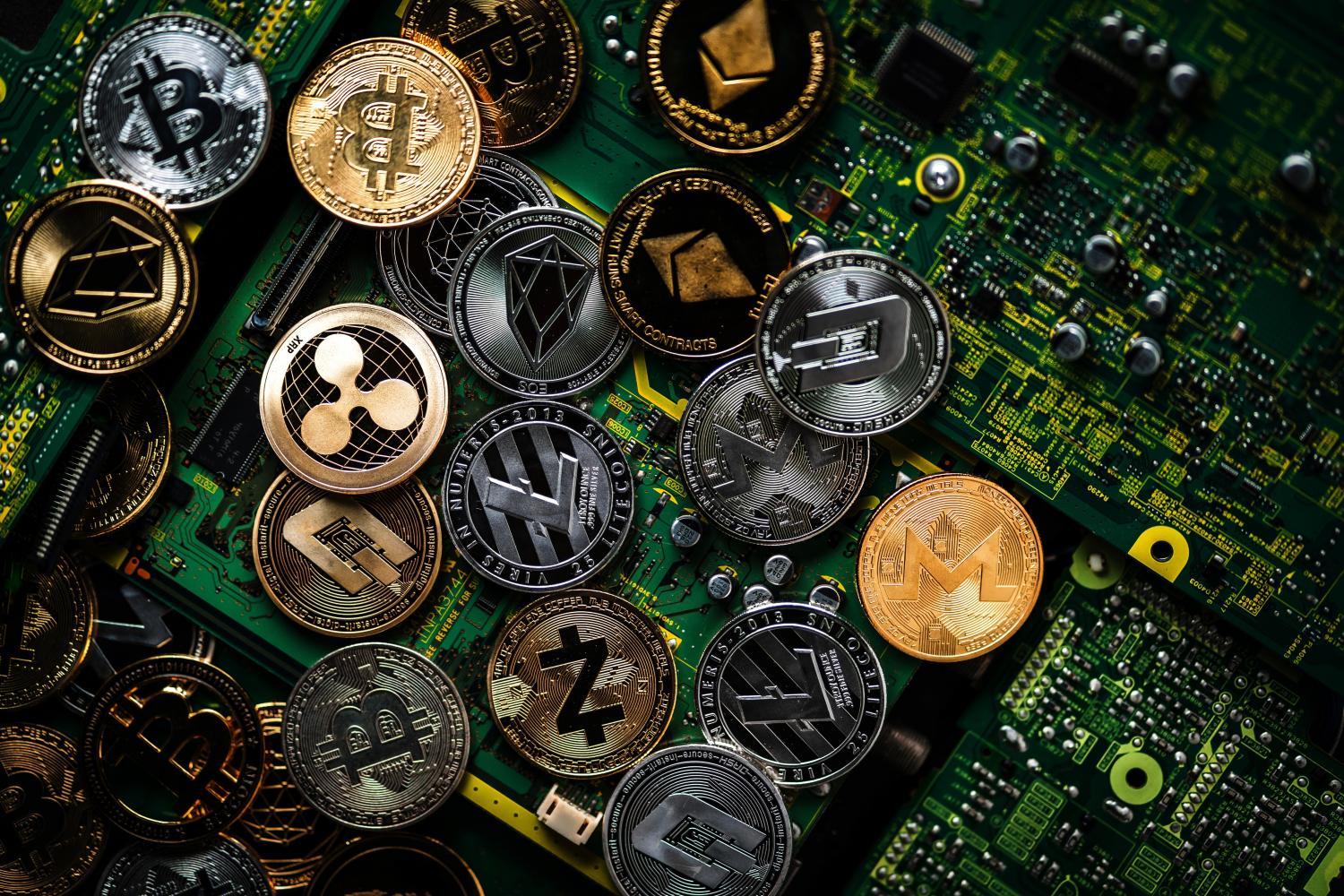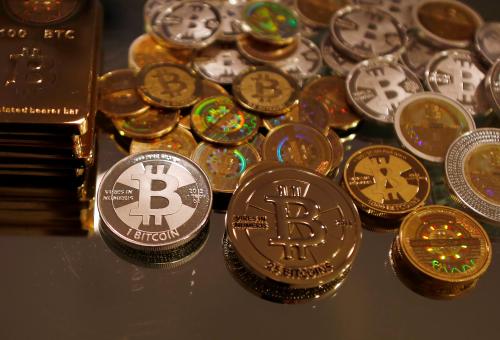The paper summarized here is part of the Spring 2022 edition of the Brookings Papers on Economic Activity (BPEA), the leading conference series and journal in economics for timely, cutting-edge research about real-world policy issues. The conference draft of the paper was presented at the Spring 2022 BPEA conference. The final version was published in the Spring 2022 issue by Johns Hopkins University Press. The recording of the conference session can be found below. Read all papers published in this issue here. Submit a proposal to present at a future BPEA conference here.
The fast-growing decentralized finance (DeFi) system—the collection of finance applications built on blockchain technology—holds promise for a new financial architecture that can eliminate the need for traditional intermediaries (such as banks, brokers, and exchanges) and reduce rents (excess profits) in the financial sector. But it also generates formidable challenges for regulators, according to a paper discussed at the Brookings Papers on Economic Activity (BPEA) conference on March 24, 2022.
“DeFi applications might have the potential to democratize finance by creating a level playing field among providers of financial products and services,” write the authors—Igor Makarov of the London School of Economics and Antoinette Schoar of the Massachusetts Institute of Technology.
But, they warn in Cryptocurrencies and Decentralized Finance (DeFi), the reduction of rents might not materialize automatically. Rents are often the result of inherent constraints to competition that arise from network externalities (the phenomenon that the value of a financial service or DeFi app increases as its use becomes more common) and economies of scale. These constraints exist both in the traditional financial system and the new architecture, and thus require careful regulation.
The permissionless and pseudonymous design of DeFi applications can severely limit the ability of regulators to oversee the industry and restrict unscrupulous actors. DeFi generates challenges for enforcing tax and money laundering laws and preventing financial malfeasance, and as a result can create negative spillovers on the rest of the economy.
The paper explains how decentralized finance works and the mechanics behind it, such as the security protocols of different cryptocurrency blockchains and smart contracts (embedded computer code that automatically executes transactions when predetermined conditions are met). The authors lay out potential benefits and challenges of the new system, including the difficulty of providing effective consumer financial protections.
The authors then highlight ways to regulate the DeFi system which would “preserve a majority of features of the blockchain architecture but support accountability and regulatory compliance.” They propose regulatory oversight of validators—the blockchain network participants who ensure the integrity of the blockchain ledger (the decentralized record of transactions) and who are paid in cryptocurrency for verifying transactions. Regulators could certify validators to ensure they check that addresses on cryptocurrency networks belong to certified entities and then only process transactions to and from certified addresses.
“If regulators wait too long, in effect cryptocurrencies and DeFi applications can become too-big-to-regulate.”
How the technology and regulation of the DeFi system evolve has important consequences for the global economy and ultimately to the United States’ standing in it, the authors write. They note that the United States enjoys “significant economic and strategic benefits” from the central role of the dollar and U.S. financial system and conclude, “therefore it is in the U.S. interest to encourage innovation and modern financial technologies but at the same time set standards that protect consumers and maintain the transparency and accountability of the system.”
However, the exponential growth of cryptocurrencies and the growing political clout of the crypto community means time is short for finding regulatory solutions, the authors caution. “If regulators wait too long,” they write, “in effect cryptocurrencies and DeFi applications can become too-big-to-regulate.”
Aknowledgment
David Skidmore authored the summary language for this paper.
Citations
Makarov, Igor and Antoinette Schoar. 2022. “Cryptocurrencies and Decentralized Finance (DeFi).” Brookings Papers on Economic Activity, Spring. 141-196.
Gorton, Gary. 2022. “Comment on ‘Cryptocurrencies and Decentralized Finance (DeFi)’.” Brookings Papers on Economic Activity, Spring. 197-205.
Prasad, Eswar. 2022. “Comment on ‘Cryptocurrencies and Decentralized Finance (DeFi)’.” Brookings Papers on Economic Activity, Spring. 206-212.
Disclosure
Gary Gorton is the Frederick Frank Class of 1954 Professor of Finance at the Yale School of Management. He was a cofounder and board member of TNB USA Inc. (The Narrow Bank), which was a Connecticut-based depository institution. The views expressed in the comment are those of the discussant and do not necessarily reflect those of Yale School of Management.
The Brookings Institution is committed to quality, independence, and impact.
We are supported by a diverse array of funders. In line with our values and policies, each Brookings publication represents the sole views of its author(s).








